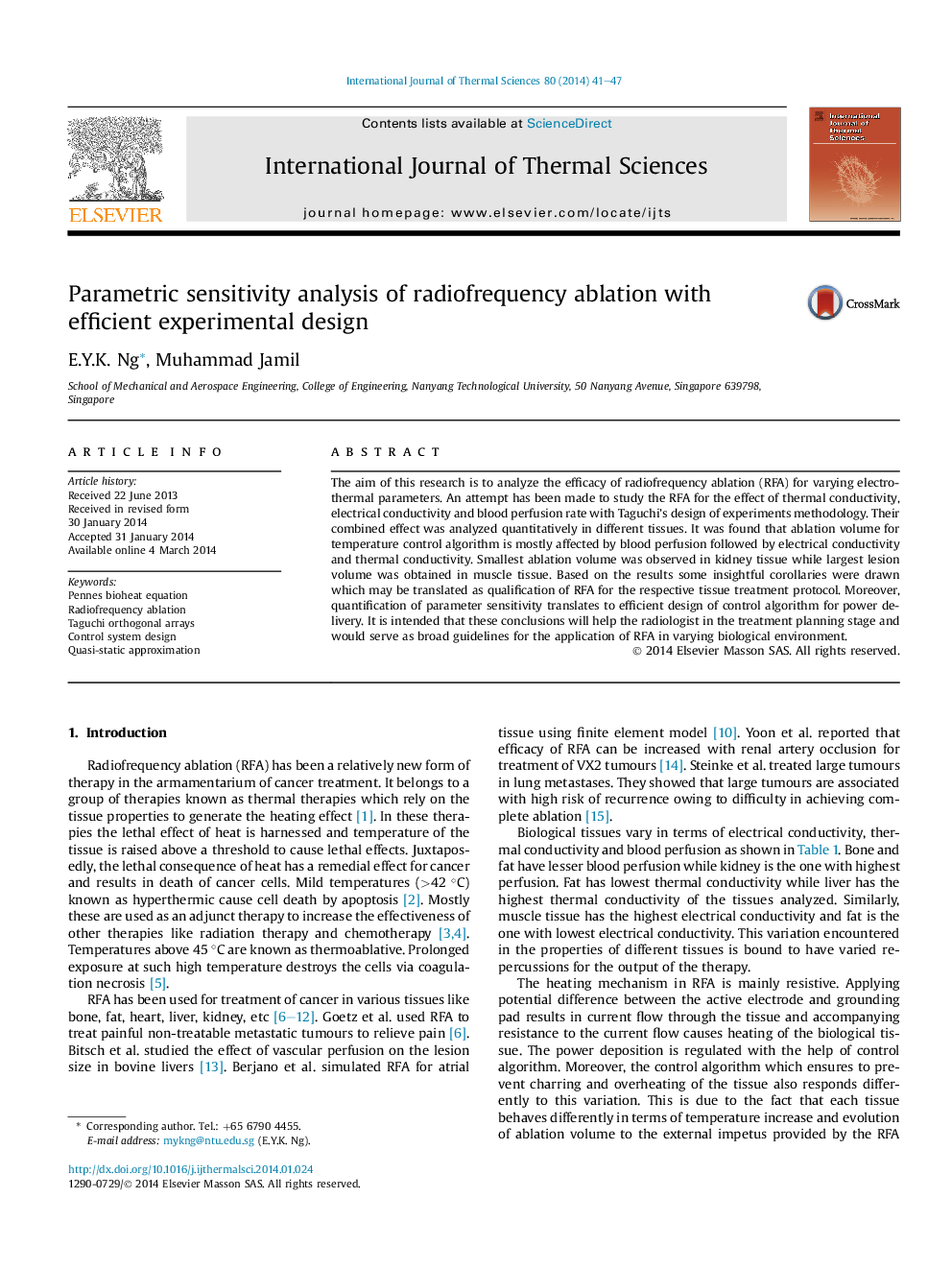| Article ID | Journal | Published Year | Pages | File Type |
|---|---|---|---|---|
| 668736 | International Journal of Thermal Sciences | 2014 | 7 Pages |
•Individual effect of critical parameters on RFA was evaluated using Taguchi experimental design.•Cumulative effect of parameters on RFA was studied for different tissue types.•Implications regarding control system design of RFA for various tissues were discussed.
The aim of this research is to analyze the efficacy of radiofrequency ablation (RFA) for varying electrothermal parameters. An attempt has been made to study the RFA for the effect of thermal conductivity, electrical conductivity and blood perfusion rate with Taguchi's design of experiments methodology. Their combined effect was analyzed quantitatively in different tissues. It was found that ablation volume for temperature control algorithm is mostly affected by blood perfusion followed by electrical conductivity and thermal conductivity. Smallest ablation volume was observed in kidney tissue while largest lesion volume was obtained in muscle tissue. Based on the results some insightful corollaries were drawn which may be translated as qualification of RFA for the respective tissue treatment protocol. Moreover, quantification of parameter sensitivity translates to efficient design of control algorithm for power delivery. It is intended that these conclusions will help the radiologist in the treatment planning stage and would serve as broad guidelines for the application of RFA in varying biological environment.
